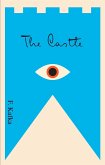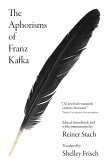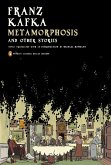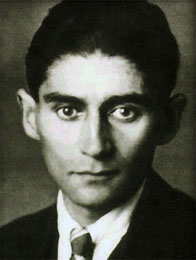First Notebook
The spectators stiffen when the train passes.
&mdash &mdash &mdash &mdash &mdash
&ldquo Whenever he ahsks me&rdquo the ah broken free from the sentence flew away like a ball in the meadow.
&mdash &mdash &mdash &mdash &mdash
His seriousness is killing me. His head in his collar, his hair arranged immovably around his skull, the muscles at the bottom of his cheeks tensed in place
&mdash &mdash &mdash &mdash &mdash
Are the woods still there? The woods were still more or less there. But scarcely had my gaze gone ten paces when I gave up ensnared again by the boring conversation.
&mdash &mdash &mdash &mdash &mdash
In the dark woods in the sodden ground I found my way only by the white of his collar.
&mdash &mdash &mdash &mdash &mdash
In a dream I asked the dancer Eduardova to dance the czardas one more time. She had a broad streak of shadow or light in the middle of her face between the lower edge of her forehead and the center of her chin. Just then came someone with the disgusting movements of an unconscious intriguer to tell her the train was about to depart. The way she listened to the message made it terribly clear to me that she would no longer dance. &ldquo I&rsquo m a bad awful woman am I not?&rdquo she said. Oh no I said not that and turned in no particular direction to leave.
&mdash &mdash &mdash &mdash &mdash
Beforehand I questioned her about the many flowers stuck in her belt. &ldquo They&rsquo re from all the princes of Europe&rdquo she said. I wondered what it meant that those flowers stuck fresh in her belt had been given to the dancer Eduardova by all the princes of Europe.
&mdash &mdash &mdash &mdash &mdash
The dancer Eduardova, a lover of music, travels on the tram as everywhere else in the company of two violinists, whom she often has play. For it&rsquo s not prohibited to play on the tram if the playing is good, is pleasant for the fellow passengers and costs nothing, that is, if afterward there&rsquo s no collection. At first it&rsquo s a bit surprising, to be sure, and for a little while everyone finds it inappropriate. But at full speed, in a strong breeze and on a quiet street it sounds pretty.
&mdash &mdash &mdash &mdash &mdash
In the open air the dancer Eduardova is not as pretty as on stage. Her pallor, those cheekbones of hers, which stretch her skin so taut that scarcely more than a faint movement appears in her face, her big nose&mdash which rises as if from a hollow&mdash with which one can&rsquo t make jokes like testing the hardness of the tip or lightly grasping it by the bridge and pulling it back and forth while saying &ldquo come along now,&rdquo her broad high-waisted figure in overly pleated skirts, who can find that appealing&mdash she almost resembles one of my aunts an elderly lady, many aging aunts of many people resemble her. But in the open air Eduardova reveals, apart from her very good feet, no compensation for these disadvantages, there&rsquo s really nothing that would give rise to enthusiasm astonishment or even respect. And so quite often I&rsquo ve seen Eduardova treated with an indifference that even gentlemen who were usually very adroit, very correct, couldn&rsquo t conceal, although naturally they took pains to do so in the presence of a dancer as famous as Eduardova was all the same.
My ear felt fresh rough cool juicy to the touch like a leaf.
I write this most definitely out of despair over my body and over the future with this body
When despair presents itself so definitely, is so closely bound to its object so firmly held back, as if by a soldier who covers the retreat and for this purpose lets himself be torn to pieces, then it is not real despair. Real despair has immediately and always overtaken its goal, (At this comma it became apparent that only the first sentence was correct)
Are you in despair?
Yes? you are in despair?
Run away? Want to hide?
I walked past the brothel as if past the house of a beloved.
&mdash &mdash &mdash &mdash &mdash
Writers speak stench
&mdash &mdash &mdash &mdash &mdash
The seamstresses in the downpours.
&mdash &mdash &mdash &mdash &mdash
From the train compartment window
&mdash &mdash &mdash &mdash &mdash
At last after five months of my life in which nothing I wrote could satisfy me and for which no power will compensate me, though all would be obligated to do so, it occurs to me to speak to myself once again. When I really asked myself a question, I still responded, here there was still something to be wrested from me, from this heap of straw that I have been for five months and whose fate, it seems, is to be set alight in the summer and to burn away before the spectator can blink. If only that would happen to me! And it should happen to me ten times over, for I don&rsquo t even regret the unhappy time. My condition is not unhappiness, but it&rsquo s not happiness either, not indifference not weakness, not fatigue, not interest in anything else, so what is it then? The fact that I don&rsquo t know is probably connected with my inability to write. And this is something I think I understand without knowing its cause. For whatever things occur to me occur not from the root, but beginning somewhere toward their middle. Just let someone try to hold them, let someone try to hold and cling to a blade of grass that only starts growing from the middle. Perhaps some can, Japanese acrobats, for example, who climb a ladder that isn&rsquo t resting on the ground but on the upturned soles of a partner lying on his back and isn&rsquo t leaning against a wall but goes straight up into the air. This is more than I can manage, not to mention the fact that my ladder doesn&rsquo t have even those soles at its disposal. That&rsquo s not all, of course, and such a question still isn&rsquo t enough to make me speak. But each day at least one line should be pointed at me as people are now pointing telescopes at the comet. And if I would then appear once before that sentence, lured by that sentence, as I was last Christmas, for example, when I had gone so far that I could only barely contain myself and when I really seemed to be on the last rung of my ladder, which, however, stood steadily on the ground and against the wall. But what a ground! what a wall! And yet that ladder didn&rsquo t fall, so firmly did my feet press it against the ground, so firmly did my feet raise it against the wall.
Hinweis: Dieser Artikel kann nur an eine deutsche Lieferadresse ausgeliefert werden.
The spectators stiffen when the train passes.
&mdash &mdash &mdash &mdash &mdash
&ldquo Whenever he ahsks me&rdquo the ah broken free from the sentence flew away like a ball in the meadow.
&mdash &mdash &mdash &mdash &mdash
His seriousness is killing me. His head in his collar, his hair arranged immovably around his skull, the muscles at the bottom of his cheeks tensed in place
&mdash &mdash &mdash &mdash &mdash
Are the woods still there? The woods were still more or less there. But scarcely had my gaze gone ten paces when I gave up ensnared again by the boring conversation.
&mdash &mdash &mdash &mdash &mdash
In the dark woods in the sodden ground I found my way only by the white of his collar.
&mdash &mdash &mdash &mdash &mdash
In a dream I asked the dancer Eduardova to dance the czardas one more time. She had a broad streak of shadow or light in the middle of her face between the lower edge of her forehead and the center of her chin. Just then came someone with the disgusting movements of an unconscious intriguer to tell her the train was about to depart. The way she listened to the message made it terribly clear to me that she would no longer dance. &ldquo I&rsquo m a bad awful woman am I not?&rdquo she said. Oh no I said not that and turned in no particular direction to leave.
&mdash &mdash &mdash &mdash &mdash
Beforehand I questioned her about the many flowers stuck in her belt. &ldquo They&rsquo re from all the princes of Europe&rdquo she said. I wondered what it meant that those flowers stuck fresh in her belt had been given to the dancer Eduardova by all the princes of Europe.
&mdash &mdash &mdash &mdash &mdash
The dancer Eduardova, a lover of music, travels on the tram as everywhere else in the company of two violinists, whom she often has play. For it&rsquo s not prohibited to play on the tram if the playing is good, is pleasant for the fellow passengers and costs nothing, that is, if afterward there&rsquo s no collection. At first it&rsquo s a bit surprising, to be sure, and for a little while everyone finds it inappropriate. But at full speed, in a strong breeze and on a quiet street it sounds pretty.
&mdash &mdash &mdash &mdash &mdash
In the open air the dancer Eduardova is not as pretty as on stage. Her pallor, those cheekbones of hers, which stretch her skin so taut that scarcely more than a faint movement appears in her face, her big nose&mdash which rises as if from a hollow&mdash with which one can&rsquo t make jokes like testing the hardness of the tip or lightly grasping it by the bridge and pulling it back and forth while saying &ldquo come along now,&rdquo her broad high-waisted figure in overly pleated skirts, who can find that appealing&mdash she almost resembles one of my aunts an elderly lady, many aging aunts of many people resemble her. But in the open air Eduardova reveals, apart from her very good feet, no compensation for these disadvantages, there&rsquo s really nothing that would give rise to enthusiasm astonishment or even respect. And so quite often I&rsquo ve seen Eduardova treated with an indifference that even gentlemen who were usually very adroit, very correct, couldn&rsquo t conceal, although naturally they took pains to do so in the presence of a dancer as famous as Eduardova was all the same.
My ear felt fresh rough cool juicy to the touch like a leaf.
I write this most definitely out of despair over my body and over the future with this body
When despair presents itself so definitely, is so closely bound to its object so firmly held back, as if by a soldier who covers the retreat and for this purpose lets himself be torn to pieces, then it is not real despair. Real despair has immediately and always overtaken its goal, (At this comma it became apparent that only the first sentence was correct)
Are you in despair?
Yes? you are in despair?
Run away? Want to hide?
I walked past the brothel as if past the house of a beloved.
&mdash &mdash &mdash &mdash &mdash
Writers speak stench
&mdash &mdash &mdash &mdash &mdash
The seamstresses in the downpours.
&mdash &mdash &mdash &mdash &mdash
From the train compartment window
&mdash &mdash &mdash &mdash &mdash
At last after five months of my life in which nothing I wrote could satisfy me and for which no power will compensate me, though all would be obligated to do so, it occurs to me to speak to myself once again. When I really asked myself a question, I still responded, here there was still something to be wrested from me, from this heap of straw that I have been for five months and whose fate, it seems, is to be set alight in the summer and to burn away before the spectator can blink. If only that would happen to me! And it should happen to me ten times over, for I don&rsquo t even regret the unhappy time. My condition is not unhappiness, but it&rsquo s not happiness either, not indifference not weakness, not fatigue, not interest in anything else, so what is it then? The fact that I don&rsquo t know is probably connected with my inability to write. And this is something I think I understand without knowing its cause. For whatever things occur to me occur not from the root, but beginning somewhere toward their middle. Just let someone try to hold them, let someone try to hold and cling to a blade of grass that only starts growing from the middle. Perhaps some can, Japanese acrobats, for example, who climb a ladder that isn&rsquo t resting on the ground but on the upturned soles of a partner lying on his back and isn&rsquo t leaning against a wall but goes straight up into the air. This is more than I can manage, not to mention the fact that my ladder doesn&rsquo t have even those soles at its disposal. That&rsquo s not all, of course, and such a question still isn&rsquo t enough to make me speak. But each day at least one line should be pointed at me as people are now pointing telescopes at the comet. And if I would then appear once before that sentence, lured by that sentence, as I was last Christmas, for example, when I had gone so far that I could only barely contain myself and when I really seemed to be on the last rung of my ladder, which, however, stood steadily on the ground and against the wall. But what a ground! what a wall! And yet that ladder didn&rsquo t fall, so firmly did my feet press it against the ground, so firmly did my feet raise it against the wall.
Hinweis: Dieser Artikel kann nur an eine deutsche Lieferadresse ausgeliefert werden.
Essential . . . The new volume, in a sensitive and briskly idiomatic translation by Ross Benjamin, offers revelation upon revelation. It s an invaluable addition to Kafka s oeuvre."
The New York Times
Momentous . . . Life also bursts into literature at the level of form, and in Kafka s diaries even the words are acrobatic. As Ross Benjamin notes in the thoughtful introduction to his new translation, his aim is to capture the extent to which the diaries were a 'laboratory for Kafka s literary production' and thereby catch the author 'in the act of writing.' He has succeeded. Everything in the diaries thrashes . . . [They] are the intimate incisions of an author who could write only by etching words into the flesh.
The New Yorker
One of the finest translating achievements in recent history.
Literary Review
"Benjamin, whose translation is the first complete and uncensored edition of the Diaries to be made available to an English readership . . . begins from scratch the whole business of restoring to the notebooks their 'provisionality, materiality, and mutability . . [His] aim is to give us the writer in his 'workshop,' blotting the page, changing his mind, running at a sentence a dozen times and still not getting it right."
The New York Review of Books
Mr. Benjamin s translation doesn t just supplant the previous edition it inaugurates a new phase of Kafka s afterlife in English . . . The writing glimmers with sensitivity, and openness to the world.
The Wall Street Journal
Readers will welcome this new edition of the Diaries, complete, uncensored, in a fluent translation by Ross Benjamin, and supplemented with 78 pages of invaluable notes, the fruit of half a century of Kafka scholarship.
J. M. Coetzee, author of Disgrace
Max Brod, Franz Kafka s intimate friend and fellow writer, was, it is now understood, both his savior and his betrayer. Without his rescue of Kafka s at-risk papers, there would be almost no Kafka at all; but in the presence of Brod s mediating intrusions as editor, have we ever really known Kafka s authentic voice? This new and scrupulously faithful translation of the Diaries brings us, unembellished by theory, the true inner life of the twentieth century s most complex and enigmatic literary prophet, whose very name has come to us as symbol and vision of innocent vulnerability in the face of irrational force. Yet warns: beware interpretation!
Cynthia Ozick, author of Antiquities
Franz Kafka s inner life has always been a bit of a mystery. The expurgated diaries in their original German and English versions hinted at his complicated, often confused relationship to sex, politics, illness, and being Jewish. This readable new translation of the complete German version of the diary transforms the silent Kafka of a century ago into a Kafka not only of his times but of ours.
Sander Gilman, author of Franz Kafka, The Jewish Patient
Thirty two years after their original publication in German, Franz Kafka's complete Diaries are here in Ross Benjamin's outstanding translation. A boon for the American reader! The previous edition of the Diaries was egregiously censored by Max Brod who eliminated whatever, in his misdirected view, could detract from the saintly image of his friend which he chiseled for posterity. Now we have in English some of the most intimate reflections and literary experiments of one of the towering geniuses of modern literature.
Saul Friedländer, author of Franz Kafka: The Poet of Shame and Guilt
A fresh, unadulterated translation of Kafka s notebooks, dense with introspection and writerly despair . . . The attraction of Kafka s diaries has always been his coruscating descriptions of his existential struggles as a writer and human being. He captures his frustration in ways that are wrenching, vivid, and highly quotable . . . Essential reading.
Kirkus Reviews
Finally! Three decades after the publication of the critical edition of Franz Kafka's diaries in Germany, English readers can now 'catch Kafka in the act of writing,' thanks to this monumental endeavor by translator Ross Benjamin. This new volume offers us Kafka's singular perspective and delivers an expanded window into Kafka's unique personality. The intricately researched and detailed Notes (75 pages of them!) provide us with a wealth of knowledge and context. For those of us in thrall to Kafka the Man as well as the Writer, the Notes add layers of life to Kafka's world and milieu and reveal a new depth and richness to Kafka's humanity. This new volume is an essential addition to the library of every serious student and reader of Kafka.
Kathi Diamant, author of Kafka's Last Love and director of the Kafka Project
A book must be the axe for the frozen sea within us, Kafka famously wrote. In his Diaries, we see him turning that axe on his own psyche, recording his dreams, jotting snatches of overheard dialogue, even drafting stories. For the first time, Ross Benjamin s new translation gives English readers access to the entirety of the Diaries, with Kafka s fragmentary structure and idiosyncratic grammar preserved. The result is the most intimate glimpse possible into the process of this singular writer.
Ruth Franklin
With this new rendition of Kafka s diaries, Benjamin escorts us inside the burrow, showing us the artist at work. At once disturbing and humanizing, these unexpurgated notebooks remind us that the achievements of this singular writer were unlikely, precarious, and paid for with great pain.
Bookforum
The Diaries are a wild ride, and a recent translation by Ross Benjamin is superb. The book is handsome, the notes extensive, and Benjamin s crisp preface is thoughtful and sincere . . . Benjamin s research has brought the play and peculiarity of Kafka s method obsessive, cyclic, demanding, open-ended and abruptly terminative at once into fresh light.
Harper s Magazine
This new edition restores the variegated richness and, at times, the tedium of the diaries . . . Here Kafka seems both genius and ingenue, and the contradiction brings him closer to us . . . The diaries, in which fiction, confession, dreams, wry humor, and despair combine in a messy, hypnotic network, feel like the closest thing to a path, so like a tripwire, that leads to the threshold of Kafka s abiding mystery.
The Guardian
The new translation restores the diaries to how Kafka wrote them: fragmentary, sometimes incoherent and disordered. It s not unusual to find a sketch continued 100 pages later or even 100 pages earlier, so chaotic was the way he filled the pages . . . It s thrilling to turn the page after acres of Olympic-standard bellyaching and find the entire text of Kafka s extraordinary short story The Judgement presented just as he wrote it, in one long overnight blizzard of creativity . . . The Diaries will open your eyes but the stories will blow your mind.
The Times (UK)
This edition of The Diaries seems a model of both scrupulousness and generosity. Here we find the unpolished inner life of one of the most significant writers that ever lived.
The Spectator
An unprecedented, almost 600-page peephole into the mind of a writer whose published prose is otherwise classically abstract and inscrutable. It s some secret to be let into.
Financial Times
Ross Benjamin s new translation, the first in 75 years, has relevance extending beyond the rarefied air of Kafka scholarship. Benjamin has restored Kafka s diaries to their messy original format, undoing virtually every editorial decision of Kafka s longtime friend, executor, and biographer, Max Brod . . . Where Brod tried to clean up Kafka s diaries for academics, Benjamin has recreated the thrill of discovering Kafka s diaries for anyone interested in snooping.
The Village Voice
Ross Benjamin has given the literary world an incredible treasure in this thoughtful edition. Kafka has never been so fully present, both as a man and a writer."
New York Journal of Books
The New York Times
Momentous . . . Life also bursts into literature at the level of form, and in Kafka s diaries even the words are acrobatic. As Ross Benjamin notes in the thoughtful introduction to his new translation, his aim is to capture the extent to which the diaries were a 'laboratory for Kafka s literary production' and thereby catch the author 'in the act of writing.' He has succeeded. Everything in the diaries thrashes . . . [They] are the intimate incisions of an author who could write only by etching words into the flesh.
The New Yorker
One of the finest translating achievements in recent history.
Literary Review
"Benjamin, whose translation is the first complete and uncensored edition of the Diaries to be made available to an English readership . . . begins from scratch the whole business of restoring to the notebooks their 'provisionality, materiality, and mutability . . [His] aim is to give us the writer in his 'workshop,' blotting the page, changing his mind, running at a sentence a dozen times and still not getting it right."
The New York Review of Books
Mr. Benjamin s translation doesn t just supplant the previous edition it inaugurates a new phase of Kafka s afterlife in English . . . The writing glimmers with sensitivity, and openness to the world.
The Wall Street Journal
Readers will welcome this new edition of the Diaries, complete, uncensored, in a fluent translation by Ross Benjamin, and supplemented with 78 pages of invaluable notes, the fruit of half a century of Kafka scholarship.
J. M. Coetzee, author of Disgrace
Max Brod, Franz Kafka s intimate friend and fellow writer, was, it is now understood, both his savior and his betrayer. Without his rescue of Kafka s at-risk papers, there would be almost no Kafka at all; but in the presence of Brod s mediating intrusions as editor, have we ever really known Kafka s authentic voice? This new and scrupulously faithful translation of the Diaries brings us, unembellished by theory, the true inner life of the twentieth century s most complex and enigmatic literary prophet, whose very name has come to us as symbol and vision of innocent vulnerability in the face of irrational force. Yet warns: beware interpretation!
Cynthia Ozick, author of Antiquities
Franz Kafka s inner life has always been a bit of a mystery. The expurgated diaries in their original German and English versions hinted at his complicated, often confused relationship to sex, politics, illness, and being Jewish. This readable new translation of the complete German version of the diary transforms the silent Kafka of a century ago into a Kafka not only of his times but of ours.
Sander Gilman, author of Franz Kafka, The Jewish Patient
Thirty two years after their original publication in German, Franz Kafka's complete Diaries are here in Ross Benjamin's outstanding translation. A boon for the American reader! The previous edition of the Diaries was egregiously censored by Max Brod who eliminated whatever, in his misdirected view, could detract from the saintly image of his friend which he chiseled for posterity. Now we have in English some of the most intimate reflections and literary experiments of one of the towering geniuses of modern literature.
Saul Friedländer, author of Franz Kafka: The Poet of Shame and Guilt
A fresh, unadulterated translation of Kafka s notebooks, dense with introspection and writerly despair . . . The attraction of Kafka s diaries has always been his coruscating descriptions of his existential struggles as a writer and human being. He captures his frustration in ways that are wrenching, vivid, and highly quotable . . . Essential reading.
Kirkus Reviews
Finally! Three decades after the publication of the critical edition of Franz Kafka's diaries in Germany, English readers can now 'catch Kafka in the act of writing,' thanks to this monumental endeavor by translator Ross Benjamin. This new volume offers us Kafka's singular perspective and delivers an expanded window into Kafka's unique personality. The intricately researched and detailed Notes (75 pages of them!) provide us with a wealth of knowledge and context. For those of us in thrall to Kafka the Man as well as the Writer, the Notes add layers of life to Kafka's world and milieu and reveal a new depth and richness to Kafka's humanity. This new volume is an essential addition to the library of every serious student and reader of Kafka.
Kathi Diamant, author of Kafka's Last Love and director of the Kafka Project
A book must be the axe for the frozen sea within us, Kafka famously wrote. In his Diaries, we see him turning that axe on his own psyche, recording his dreams, jotting snatches of overheard dialogue, even drafting stories. For the first time, Ross Benjamin s new translation gives English readers access to the entirety of the Diaries, with Kafka s fragmentary structure and idiosyncratic grammar preserved. The result is the most intimate glimpse possible into the process of this singular writer.
Ruth Franklin
With this new rendition of Kafka s diaries, Benjamin escorts us inside the burrow, showing us the artist at work. At once disturbing and humanizing, these unexpurgated notebooks remind us that the achievements of this singular writer were unlikely, precarious, and paid for with great pain.
Bookforum
The Diaries are a wild ride, and a recent translation by Ross Benjamin is superb. The book is handsome, the notes extensive, and Benjamin s crisp preface is thoughtful and sincere . . . Benjamin s research has brought the play and peculiarity of Kafka s method obsessive, cyclic, demanding, open-ended and abruptly terminative at once into fresh light.
Harper s Magazine
This new edition restores the variegated richness and, at times, the tedium of the diaries . . . Here Kafka seems both genius and ingenue, and the contradiction brings him closer to us . . . The diaries, in which fiction, confession, dreams, wry humor, and despair combine in a messy, hypnotic network, feel like the closest thing to a path, so like a tripwire, that leads to the threshold of Kafka s abiding mystery.
The Guardian
The new translation restores the diaries to how Kafka wrote them: fragmentary, sometimes incoherent and disordered. It s not unusual to find a sketch continued 100 pages later or even 100 pages earlier, so chaotic was the way he filled the pages . . . It s thrilling to turn the page after acres of Olympic-standard bellyaching and find the entire text of Kafka s extraordinary short story The Judgement presented just as he wrote it, in one long overnight blizzard of creativity . . . The Diaries will open your eyes but the stories will blow your mind.
The Times (UK)
This edition of The Diaries seems a model of both scrupulousness and generosity. Here we find the unpolished inner life of one of the most significant writers that ever lived.
The Spectator
An unprecedented, almost 600-page peephole into the mind of a writer whose published prose is otherwise classically abstract and inscrutable. It s some secret to be let into.
Financial Times
Ross Benjamin s new translation, the first in 75 years, has relevance extending beyond the rarefied air of Kafka scholarship. Benjamin has restored Kafka s diaries to their messy original format, undoing virtually every editorial decision of Kafka s longtime friend, executor, and biographer, Max Brod . . . Where Brod tried to clean up Kafka s diaries for academics, Benjamin has recreated the thrill of discovering Kafka s diaries for anyone interested in snooping.
The Village Voice
Ross Benjamin has given the literary world an incredible treasure in this thoughtful edition. Kafka has never been so fully present, both as a man and a writer."
New York Journal of Books









